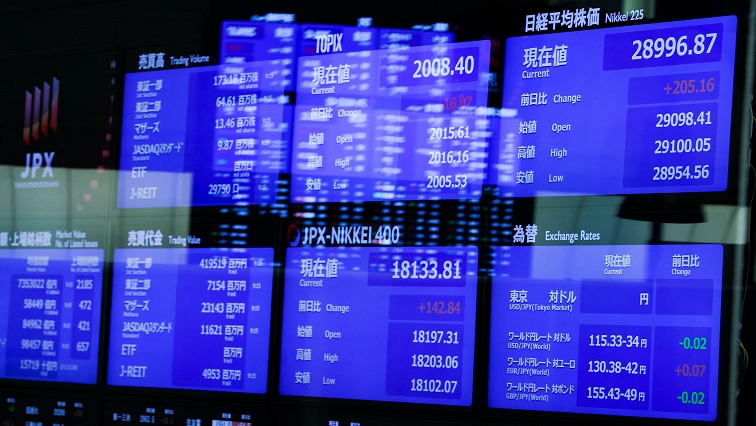Asian shares extended their rally on Monday as investors hoped steps to unwind pandemic restrictions in China would eventually brighten the outlook for global growth and commodity demand, nudging the dollar down against the yuan.
The news helped oil prices firm as OPEC+ nations reaffirmed their output targets ahead of a European Union ban and price caps on Russian crude, which begin on Monday.
More Chinese cities announced an easing of coronavirus curbs on Sunday as Beijing tries to make its zero-COVID policy less onerous after recent unprecedented protests against restrictions. There were also reports Beijing might lower the threat classification for COVID-19, though clarity was lacking on timetables for future steps.
"While the easing of some restrictions does not equate to a wholesale shift away from the dynamic COVID zero strategy just yet, it is further evidence of a shifting approach and financial markets look to be firmly focussed on the longer term outlook over the near-term hit to activity as virus cases look set to continue," said Taylor Nugent, an economist at NAB.
MSCI's broadest index of Asia-Pacific shares outside Japan (.MIAPJ0000PUS) added 1.7% to a three-month top, after rallying 3.7% last week. Japan's Nikkei (.N225) edged up 0.1%, while South Korea (.KS11) eased 0.4%.
EUROSTOXX 50 futures added 0.1%, while FTSE futures were flat. S&P 500 futures and Nasdaq futures both fell 0.1%.
Wall Street had lost some momentum on Friday after November's robust U.S. payrolls report challenged hopes for a less aggressive Federal Reserve, though Treasuries still ended last week with solid gains. read more
Indeed, 10-year note yields have fallen 74 basis points since early November, effectively undoing much of the tightening of the Fed's last outsized increase in cash rates.
Markets are wagering Fed rates will top out at 5% and the European Central Bank around 2.5%.
"But U.S. and Euro area labour demand remain surprisingly strong, and alongside a recent easing in financial conditions, the risks are shifting toward higher-than-anticipated terminal rates for both the Fed and the ECB," warns Bruce Kasman, head of economic research at JPMorgan.
"The combination of labour market resilience with sticky wage inflation adds to the risk that the Fed will deliver a higher than 5% rate forecast at its upcoming meeting and that Chair Jerome Powell's press conference will shift to more open-ended guidance regarding any near-term ceiling on rates."











